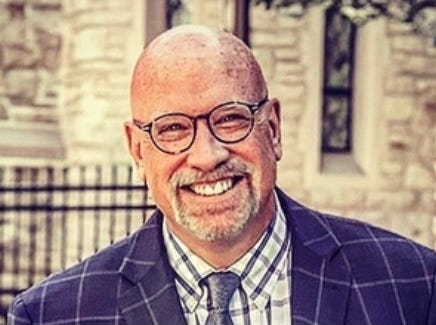
There is a crisis unfolding in our nation—a crisis not of economics or politics, but of fatherhood. It is a quiet, largely unspoken epidemic that permeates our homes, our schools, and our streets. The numbers are startling. According to the America First Policy Institute, over 18.3 million children in the United States—about 1 in 4—live without a father in the home. In nearly 80% of single-parent households, the father is absent. These are not just statistics; they are souls deprived of the essential presence of a father.
Why does this matter? Because when fathers are absent, everything begins to unravel. Children without fathers are four times more likely to live in poverty, more likely to experience behavioral problems, and more likely to drop out of school. Communities with high levels of fatherlessness see significantly higher rates of crime and violence. The correlation is undeniable, and the consequences are devastating. Yet we continue to sidestep the root cause: we have forsaken the foundational pillars of a thriving society—faith, family, and formation.
These three pillars are not just political or cultural talking points; they are divinely instituted truths. And no figure better exemplifies the power of these three intertwined realities than St. Joseph.
The Just Man: Joseph's Scriptural Witness
St. Joseph, the foster father of Jesus and husband of Mary, is often called the "Silent Saint." Nowhere in Scripture do we hear him speak, yet his actions resonate with clarity, dignity, and divine obedience. In Matthew 1:19, Joseph is described as a "just man," a title that in the biblical tradition speaks volumes. It signals a man who lives in right relationship with God and with others. When Joseph learns of Mary's mysterious pregnancy, he does not react with outrage or vengeance. Instead, he seeks to divorce her quietly, out of reverence and mercy.
But then the archangel Gabriel appears to him in a dream, saying, "Joseph, son of David, do not be afraid to take Mary your wife into your home" (Matthew 1:20). As a side discussion here, St. Gabriel, is the same archangel who appeared to the Blessed Virgin Mary (Luke 1:26-38) and to Zechariah (Luke 1:11-20). St Gabriel is known as a messenger of significant divine announcements, especially regarding the Incarnation. And since the messages to Joseph concerned the Incarnation and divine protection of Jesus, it aligns with St. Gabriel's role.
So what does Joseph do? He obeys. No protest, no delay. He rises and follows God's will. Again and again, Joseph is guided by dreams, and every time he obeys without hesitation. When warned to flee to Egypt, he takes Mary and Jesus under cover of night to protect them from Herod's wrath (Matthew 2:13-15). When told it is safe to return, he leads them back. Joseph is not a man of words but of action, a man who listens and obeys.
Joseph and the Catechism: The Father's Role in the Domestic Church
The Catechism of the Catholic Church places great emphasis on the family as the "domestic church." Paragraph 1655 of the Catechism states, "Christ chose to be born and grow up in the bosom of the holy family of Joseph and Mary." It is within this sacred unit that the Son of God himself was formed in his humanity. The model set by St. Joseph is thus not optional or peripheral; it is central to understanding the vocation of fatherhood.
In CCC 532, we read: "Jesus' obedience to his parents fulfills the fourth commandment perfectly and was the temporal image of his filial obedience to his Father in heaven." Joseph, though not Jesus' biological father, is the earthly mirror of the Heavenly Father. In his love, guidance, and discipline, Joseph helped prepare the Son of God for His public mission.
Fathers today are called to do the same. They are not merely providers or protectors; they are spiritual leaders, moral guides, and the first educators of their children in the ways of faith. When fathers are absent, the entire spiritual formation of the child is placed at risk. It is no surprise, then, that studies consistently show a direct link between a father’s faith and the religious commitment of his children. A 2021 article by the Institute for Family Studies noted that children whose fathers regularly attend church are far more likely to remain faithful as adults and its 87%.
What the Fathers Taught About Fathers
The early Church Fathers understood the vital role of paternal influence. St. John Chrysostom wrote extensively on the responsibility of fathers, urging them to raise their children "in the discipline and instruction of the Lord" (Ephesians 6:4). He was not content with fathers simply teaching morality; he called them to embody holiness, to create a home where the love of Christ was not just spoken but lived.
St. Augustine, too, stressed the formative power of the father. In his Confessions, he speaks of the example set by his own mother, St. Monica, but he also laments the absence of strong paternal influence in society. Augustine knew that a child’s early experiences of authority, love, and discipline set the stage for their entire spiritual journey.
So, what happens when this sacred office is abdicated? Society becomes unmoored. If fathers no longer see themselves as moral anchors, their children drift. If they do not transmit the faith, it is lost within a generation. If they do not form their children in virtue, the culture of life crumbles into a culture of chaos.
St. Joseph and the Rebuilding of a Civilization
It is no accident that in our time, devotion to St. Joseph has seen a great resurgence. In 2021, Pope Francis declared a Year of St. Joseph, calling the Church to rediscover his powerful example. He wrote in Patris Corde that "Each of us can discover in Joseph, the man who goes unnoticed, a daily, discreet and hidden presence, an intercessor, a support and a guide in times of trouble."
We are indeed in times of trouble. We are raising a generation of young men who do not know how to be fathers because they have never seen one. We are living in a culture where the vocation of fatherhood is mocked, diminished, or abandoned. In such a world, we need a spiritual father like St. Joseph more than ever.
St. Joseph teaches us that fatherhood is not about dominance but service, not about power but sacrifice. He shows us that a true father protects, provides, and prays. He labors without complaint, loves without fanfare, and leads without words.
Recommitting to the Three Pillars
In my published works, I speak often of the three pillars that uphold a faithful and flourishing society: faith, family, and formation. Each of these finds their living embodiment in St. Joseph.
Faith is the foundation. Joseph's life was a continual yes to God. Even in confusion, even in fear, he trusted. He did not understand everything, but he understood enough to obey. In a culture that idolizes autonomy and mocks obedience, Joseph teaches us the liberating power of trust in Divine Providence.
Family is the heart. The Holy Family was not rich, not powerful, not comfortable. But they were united. Joseph accepted Mary and Jesus with courage and love. He provided not only a roof but a home, not only food but affection. In doing so, he sanctified the ordinary rhythms of daily life.
Formation is the mission. Joseph taught Jesus how to work with his hands, how to be a man, how to live the law and love the Lord. Though the Son of God needed no education in the divine, He submitted Himself to human formation. And Joseph, silent and steadfast, became the teacher of the Teacher.
Every father is called to the same task. You are the first teacher your children will ever know. Before the Church or school or society speaks into their lives, it is your voice they hear. The question is: what will they hear? What will you show them?
A Call to Action
We must rebuild what has been broken. We must form fathers who are not only providers but prophets, not only workers but warriors for truth. This will not happen through mere programs or policies. It will happen through conversion.
To the fathers listening: return to prayer. Place your family under the protection of St. Joseph. Go to confession. Take your children to Mass. Pray the Rosary with them. Teach them the faith. Love their mother. This is your mission.
To the Church: preach the vocation of fatherhood. Celebrate it, support it, defend it. Provide mentors for young men. Encourage spiritual fatherhood among priests. Let us not be afraid to affirm the unique and irreplaceable role of the father in God’s plan.
To society: honor fatherhood again. Pass policies that strengthen families. Reform systems that punish presence and reward abandonment. Recognize that no institution can replace the love and leadership of a father.
Conclusion: A Father for Our Time
St. Joseph may have been silent in Scripture, but today he speaks loudly. He speaks through his example, his faith, his fidelity. He calls us to rebuild not with anger but with hope, not with slogans but with sanctity.
If we are to save this generation from the fatherless future that looms ahead, we must return to the model of St. Joseph. He is not a relic of the past but a prophetic voice for our time. With his help, we can restore the pillars of faith, family, and formation. And in doing so, we can heal our homes, renew our Church, and redeem our culture.
St. Joseph, Terror of Demons, pray for us.
Welcome to the St Michael’s Group! In a world facing a decline in religious belief and an increase in moral confusion, the need to reignite our faith has never been more critical. Religion’s capacity to offer meaning, foster ethical behavior, and build cohesive communities is vital for countering the spread of spiritual apathy and the influence of evil. By renewing our commitment to faith, we can combat the forces that seek to divide and weaken us. Reigniting our faith lives, therefore, is not just a personal endeavor but a collective responsibility. It is essential for preserving the moral and spiritual fabric of our society, ensuring that love, compassion, and justice continue to be the guiding principles of human existence.
This is why I started the St. Michael’s Group Substack and Podcast. Join us today stmichaelsgroup.substack.com and let’s start a movement of reigniting faith, family, and formation back into our lives.
This is Dr. Currie Myers. I am an applied criminologist and criminal justice ethicist. I have been on faculty in the criminology department at Benedictine College for over 13 years and was a career law enforcement officer for 24 years. Most importantly I have a beautiful family. My wife and I have been married for 37 years, and we have five children and 10 grandchildren. You can view my work on applied criminology at drcurriemyers.substack.com. Have a great and blessed week and please subscribe and share this podcast with others. And more importantly, if you are struggling in life and need someone to talk to, we have a chat function that you can contact me directly. And if you wish for me to speak at one of your events, please contact (catholicspeakers.com) to schedule.
If this episode moved you, I invite you to share it with someone you love. Let this be a holy conversation starter. And if you haven’t already, spend time in front of the Cross this weekend. Not to look at it, but to be changed by it.
Thanks for joining me! Stay rooted in faith, sharpened by virtue, and courageous in truth. God bless you, and I’ll see you next time on The St. Michael’s Group Podcast.
Dr Currie Myers, America's Criminologist - Former Agonistic turned Convert to the Catholic Faith. Dr. Myers is a published author and speaker. Contact (catholicspeakers.com) for Dr. Myers to speak at your event!
Are you interested in helping to fund our work? You can go to the paid version or you can go to this link About - St Michael's Group and you can visit our PayPal QR Code, or you can reach out to me in our chat function for further directions. It would be much appreciated!















Share this post